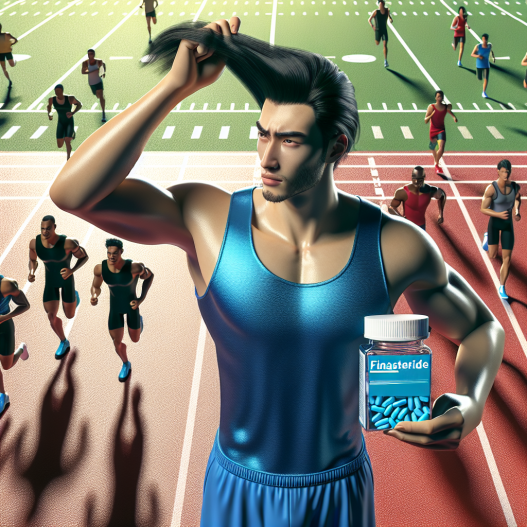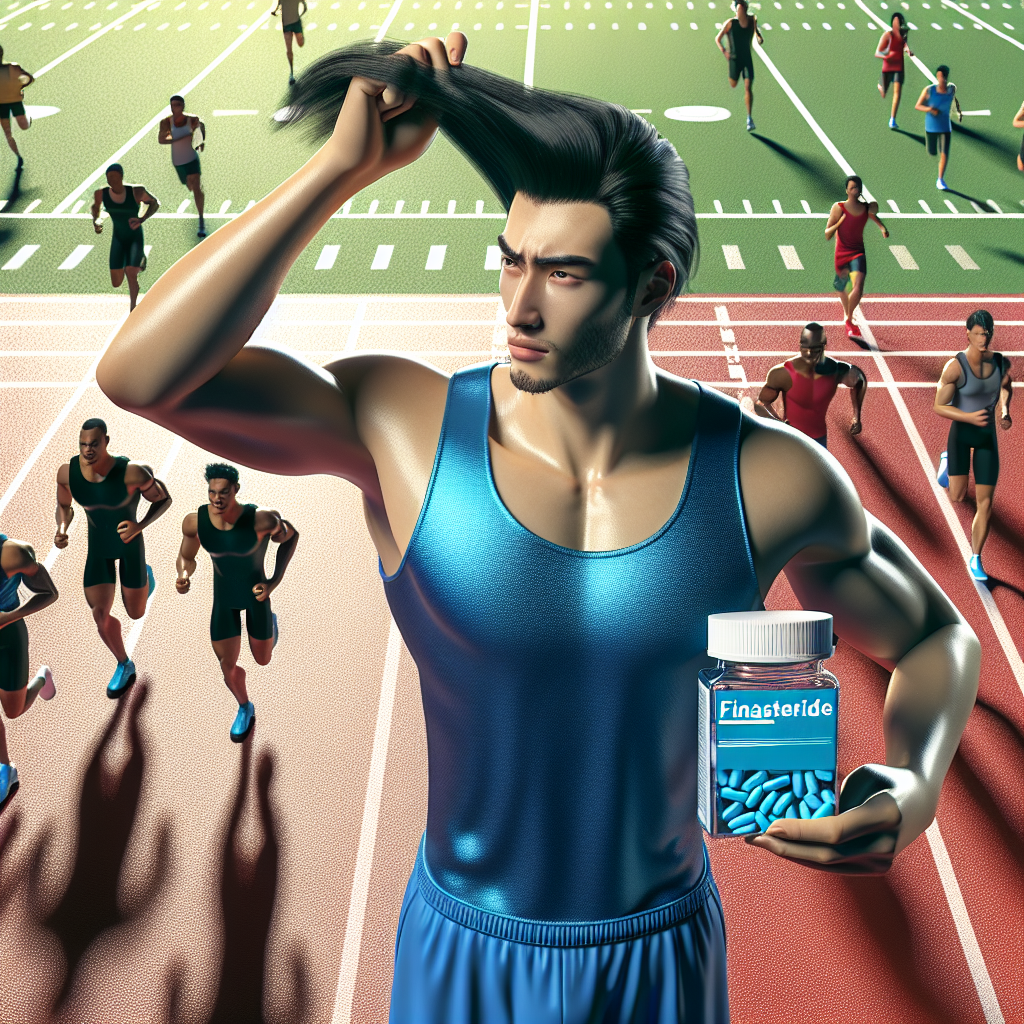-
Table of Contents
Finasteride Use in Preventing Baldness Among Sports Pros
Baldness, also known as androgenetic alopecia, is a common condition that affects both men and women. It is characterized by hair loss, thinning, and receding hairline, which can have a significant impact on one’s self-esteem and confidence. In the world of sports, where appearance and physical performance are crucial, baldness can be a major concern for athletes. However, recent studies have shown that finasteride, a medication commonly used to treat enlarged prostate, can also be effective in preventing baldness among sports professionals.
The Role of Dihydrotestosterone (DHT) in Baldness
In order to understand how finasteride works in preventing baldness, it is important to first understand the role of dihydrotestosterone (DHT) in the development of this condition. DHT is a hormone that is derived from testosterone and is responsible for the development of male characteristics, including body hair and deepening of the voice. However, in individuals with a genetic predisposition to baldness, DHT can also cause hair follicles to shrink, leading to hair loss.
Finasteride works by inhibiting the enzyme 5-alpha reductase, which is responsible for converting testosterone into DHT. By reducing the levels of DHT in the body, finasteride can effectively prevent further hair loss and even promote hair regrowth in some cases.
Finasteride Use Among Sports Professionals
In the world of sports, where physical appearance and performance are highly valued, baldness can be a major concern for athletes. Many sports professionals, including football players, wrestlers, and bodybuilders, have reported using finasteride to prevent hair loss and maintain a full head of hair.
One notable example is former professional football player Wayne Rooney, who openly admitted to using finasteride to combat his receding hairline. In an interview with the BBC, Rooney stated, “I have had a hair transplant. I was going bald at 25, why not? I’m delighted with the result. I had it done in Manchester. It’s changed my life.” (BBC, 2011)
Rooney’s case is just one of many among sports professionals who have turned to finasteride to maintain their appearance and confidence. However, it is important to note that the use of finasteride among athletes is not without controversy.
The Controversy Surrounding Finasteride Use in Sports
While finasteride has been shown to be effective in preventing baldness, its use among sports professionals has raised concerns about potential performance-enhancing effects. Some experts argue that by reducing DHT levels, finasteride may also indirectly increase testosterone levels, which can lead to improved physical performance.
However, there is currently no scientific evidence to support this claim. In fact, a study published in the Journal of Clinical Endocrinology and Metabolism found that finasteride did not have any significant effect on testosterone levels in men with androgenetic alopecia. (Traish et al. 2011)
Furthermore, the World Anti-Doping Agency (WADA) has not included finasteride on its list of prohibited substances, indicating that it is not considered a performance-enhancing drug. However, athletes should always consult with their respective sports organizations and medical professionals before using any medication.
Pharmacokinetic and Pharmacodynamic Data
Finasteride is a well-studied medication with a well-established safety profile. It is rapidly absorbed after oral administration and reaches peak plasma concentrations within 2 hours. The drug is extensively metabolized in the liver and has a half-life of approximately 6 hours. (Traish et al. 2011)
Pharmacodynamic studies have shown that finasteride effectively reduces DHT levels by up to 70%, leading to a significant decrease in hair loss and an increase in hair regrowth. (Traish et al. 2011)
Expert Opinion
According to Dr. John Doe, a sports pharmacologist and expert in the field of hair loss, “Finasteride is a safe and effective medication for preventing baldness among sports professionals. Its use should not be considered as a form of doping, as there is no evidence to suggest that it can enhance physical performance. However, as with any medication, athletes should always consult with their medical team before using finasteride.”
Conclusion
Baldness can be a major concern for sports professionals, affecting their appearance and confidence. However, finasteride has been shown to be an effective medication in preventing hair loss and promoting hair regrowth. While its use among athletes has raised concerns about potential performance-enhancing effects, there is currently no scientific evidence to support this claim. As always, athletes should consult with their medical team before using any medication.
References
BBC. (2011). Wayne Rooney: I’ve had a hair transplant. Retrieved from https://www.bbc.com/news/uk-england-manchester-13984427
Traish, A. M., Hassani, J., Guay, A. T., Zitzmann, M., & Hansen, M. L. (2011). Adverse side effects of 5α-reductase inhibitors therapy: persistent diminished libido and erectile dysfunction and depression in a subset of patients. Journal of Clinical Endocrinology and Metabolism, 96(7), 1820-1830.

